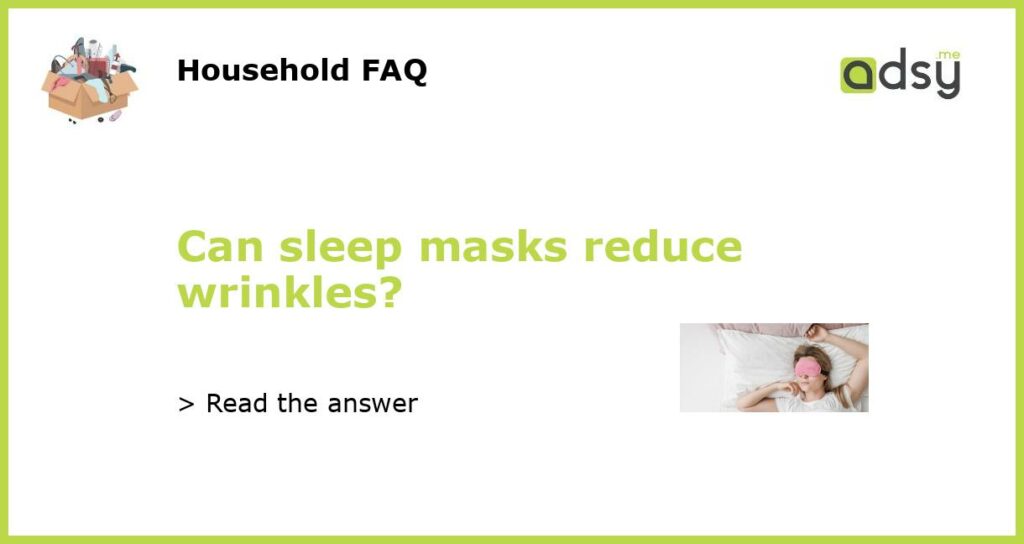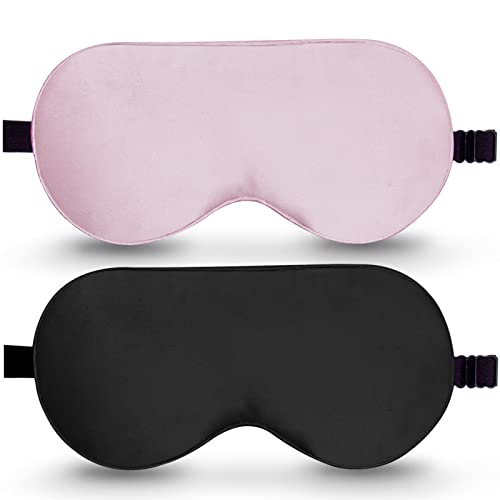Do sleep masks really reduce wrinkles?
Wrinkles are an inevitable part of the aging process, and many people are willing to try just about anything to reduce their appearance. From creams and serums to facelifts and Botox injections, there are a wide variety of products and procedures on the market that claim to reduce wrinkles. One lesser-known method that has gained popularity in recent years is the use of sleep masks. But can sleep masks really reduce wrinkles, or is this just another beauty trend? Let’s take a closer look.
How do sleep masks work?
Sleep masks, also known as eye masks or beauty masks, are typically made of a soft material like silk or satin and are designed to cover the eyes during sleep. They are often used to block out light and promote a deeper, more restful sleep. However, some sleep masks also claim to have anti-aging benefits.
Proponents of sleep masks for wrinkle reduction suggest that wearing a sleep mask can help to prevent wrinkles by minimizing the amount of friction and pressure placed on the delicate skin around the eyes during sleep. They argue that the smooth, soft material of the mask reduces the likelihood of the skin being pulled or creased, which can lead to the formation of wrinkles over time.
The science behind sleep masks and wrinkle reduction
While the idea of sleep masks reducing wrinkles may sound promising, the scientific evidence supporting these claims is limited. There have been few studies specifically investigating the effectiveness of sleep masks for wrinkle reduction.
One study published in the Journal of Advanced Nursing found that using a sleep mask was associated with a significant reduction in crow’s feet, one of the most common types of wrinkles around the eyes. However, the study did not have a control group, so it is difficult to determine whether the results were solely due to the use of the sleep mask or other factors.
Another study published in the Journal of Cosmetic Dermatology found that using a sleep mask made of copper-embedded fabric for four weeks resulted in a reduction in fine lines and wrinkles. Copper has been found to have anti-aging properties, so this finding may be more related to the use of copper rather than the sleep mask itself.
Other factors to consider
While sleep masks may have potential benefits for wrinkle reduction, it is important to consider other factors that can contribute to the formation of wrinkles. The position you sleep in, for example, can have a significant impact on the development of wrinkles. Sleeping on your stomach or side can lead to the formation of sleep wrinkles, which are caused by the repeated compression of the skin against a pillow.
Additionally, lifestyle factors such as sun exposure, smoking, and diet can all play a role in the development of wrinkles. Protecting your skin from the sun, quitting smoking, and maintaining a healthy diet can all help to reduce the appearance of wrinkles.
While the idea of sleep masks reducing wrinkles may seem appealing, the scientific evidence supporting these claims is limited. There is some research suggesting that sleep masks may have benefits for wrinkle reduction, but more studies are needed to confirm these findings. It is also important to consider other factors that can contribute to the formation of wrinkles, such as sleep position and lifestyle choices. Ultimately, the best way to prevent and reduce wrinkles is to take a holistic approach to skincare and prioritize overall skin health.






